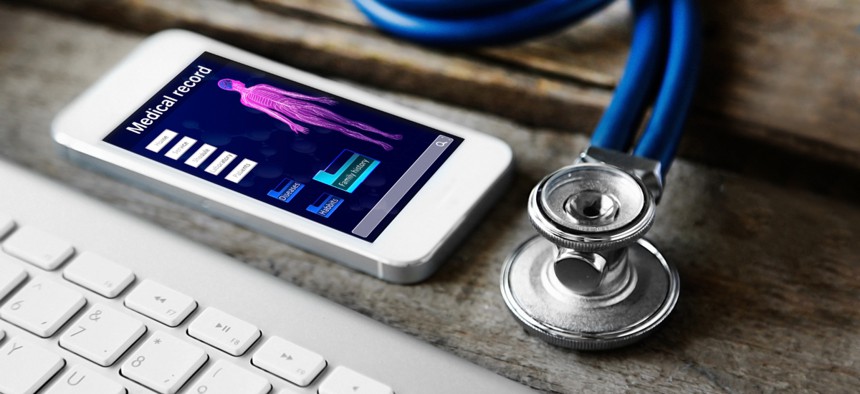Proposed Rule Would Force Health Care Providers to Share Records Electronically

Africa Studio/Shutterstock.com
For millions of Americans, accessing their health records is an onerous task. A new rule could change that.
A new rule proposed by the Trump administration could put the health care records of millions of Americans in their own pockets and onto their smartphones—whenever they want, free of charge.
The rule—proposed by the Trump administration in February and out for public comment—would force health care providers and plans to provide health records to patients in a standardized electronic format.
Health care providers and others that don’t play ball or engage in “information blocking” by not being interoperable with other providers or exchanges would face fines of up to $1 million under the rule.
“We think it is going to be transformative in giving care back to you, on your own terms, not on the terms of other people,” said Dr. Don Rucker, National Coordinator for Health Information Technology, speaking Wednesday at an event hosted by Nextgov.
The rule is the Trump administration’s execution of the 21st Century Cures Act, which Congress passed in 2016. Oftentimes, patients face an onerous and sometimes-costly experience accessing their own health records, in part because competing health care companies operate a smorgasbord of proprietary platforms and technologies.
“What Congress wants is for us to have our medical records on our smartphones so that we own our medical records, we can take it with us, we can shop for care, we can be engaged in our care,” Rucker said. “We’re changing the paradigm to put you in charge of your health records.”
In a recent op-ed published in Fortune, White House Senior Adviser Jared Kushner, Centers for Medicare and Medicaid Services Administrator Seema Verma and White House Deputy Chief of Staff for Policy Coordination Chris Liddell wrote, “If finalized in its current form, this rule will ensure that an additional 85 million patients have access to their health information in a standardized digital format.”
The rule—in concert with other policy changes led by the Health and Human Services Department Centers for Medicare and Medicaid—could help spark a new ecosystem of personalized health care applications. While the rule dictates health records data must be shared in secure format between providers and patients, Rucker said users in the not-too-distant future may have to be cautious about what applications they decide to give access to their personal healthcare data.
“The reality is these smartphones are very powerful, all kinds of things are going to happen here,” Rucker said. “I think in the future, we’re going to have to, as a society, exert a lot more individual judgment, in this case with respect to the entire apps space. Your personal cell phone uniquely identifies you from every other personal on the planet. As a country and as a world, we have to sort out the privacy thing.”
NEXT STORY: Army pushes cyber to the battlefield






